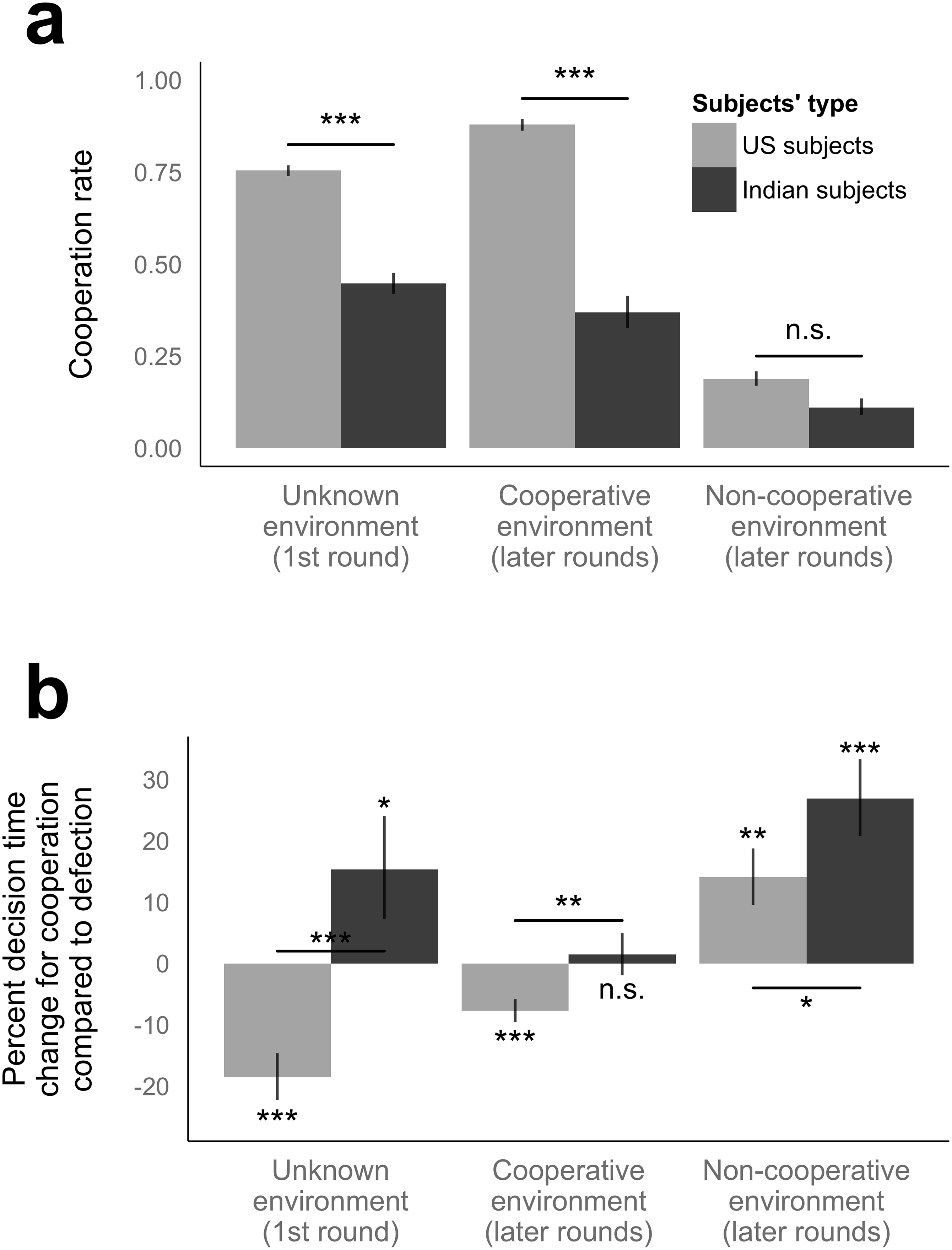
Cooperation, Decision Time, and Culture: Online Experiments with American and Indian Participants
Abstract
Two separate bodies of work have examined whether culture affects cooperation in economic games and whether cooperative or non-cooperative decisions occur more quickly. Here, we connect this work by exploring the relationship between decision time and cooperation in American versus Indian subjects. We use a series of dynamic social network experiments in which subjects play a repeated public goods game: 80 sessions for a total of 1,462 subjects (1,059 from the United States, 337 from India, and 66 from other countries) making 13,560 decisions. In the first round, where subjects do not know if connecting neighbors are cooperative, American subjects are highly cooperative and decide faster when cooperating than when defecting, whereas a majority of Indian subjects defect and Indians decide faster when defecting than when cooperating. Almost the same is true in later rounds where neighbors were previously cooperative (a cooperative environment) except decision time among Indian subjects. However, when connecting neighbors were previously not cooperative (a non-cooperative environment), a large majority of both American and Indian subjects defect, and defection is faster than cooperation among both sets of subjects. Our results imply the cultural background of subjects in their real life affects the speed of cooperation decision-making differentially in online social environments.
Citation:
A. Nishi, N.A. Christakis, and D. G. Rand, "Cooperation, Decision Time, and Culture: Online Experiments with American and Indian Participants" PLoS ONE, (February 2017) DOI: 10.1371/journal.pone.0171252